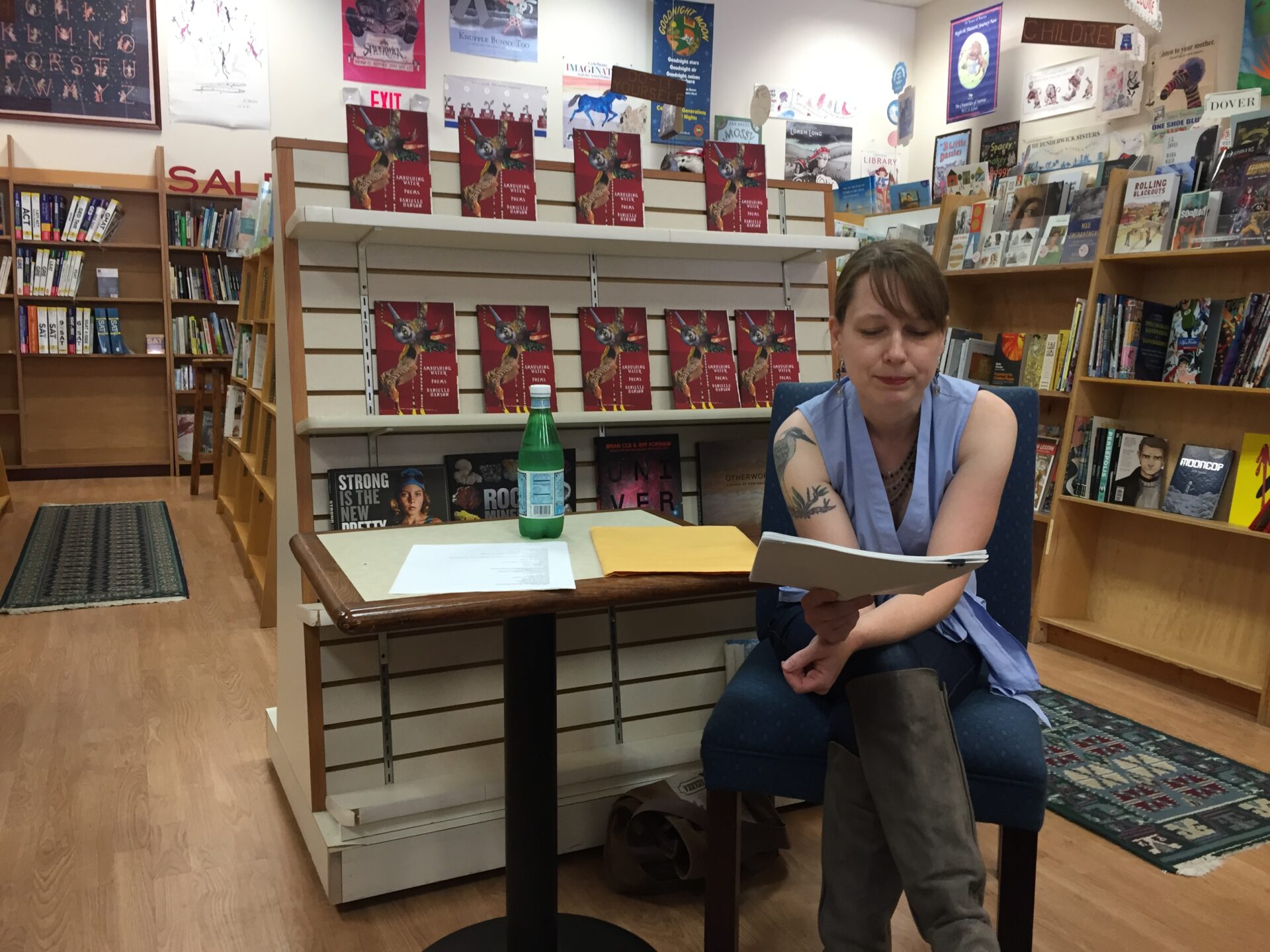We were lucky to catch up with Danielle Hanson recently and have shared our conversation below.
Danielle, thank you so much for taking the time to share your lessons learned with us and we’re sure your wisdom will help many. So, one question that comes up often and that we’re hoping you can shed some light on is keeping creativity alive over long stretches – how do you keep your creativity alive?
Input and time are the most important components for my creativity and, I think, creativity in general. As a writer, my input is reading other people’s writing (in and outside my genre of poetry), and reading and listening to news, voices of people I meet, scientific articles, reality TV, anything that sparks my interest. Input also means collaborations with other artists, visual and performing, and meeting with women entrepreneurs about their businesses and challenges. Just being engaged in the world, but especially focused on poetry, human experience, and marketing. Then processing that input with time. I like to hike, and watch birds. Having time away from human input and noise helps me to create connections and bring perspective to the ideas I’ve heard and seen.
Beyond that, I set goals for my creative work every year (number of poems to write, number of times to send work to journals for publications, number of artists to contact about collaborations, etc) and hold myself accountable to that work. It’s easy to put off creative work for something that gives immediate, tangible rewards. But creativity is like meditation, if you don’t have an intent and follow through with that intent, it’s less likely to happen.
Also, I take risks with my work. What would happen if I did X, or if a character in a poem does X? The stakes are so low. I might write a bad poem, or get a rejection. Everyone who writes poetry writes a bad poem, and every creative gets a rejection. So I might as well have some fun playing with an odd thought.
Thanks, so before we move on maybe you can share a bit more about yourself?
I’m a poet and editor who strives to create and facilitate wonder.
I have two published collections of poetry: Ambushing Water (Brick Road Poetry Press) and Fraying Edge of Sky (Codhill Press). I’m working on a couple others. My poems have appeared in over 100 journals. I’m Marketing Director for Sundress Publications, and on their Editorial Board. I’ve been Poet-in-Residence at Arts Beacon in Atlanta, and Writer-in-Residence for Georgia Writers. I’ve edited several anthologies and collections of poetry, and a book of literary criticism. I’ve written a show for the Center of Puppetry Arts in Atlanta, and I’m working on a longer collaboration with them. I teach poetry at UC Irvine.
There is so much advice out there about all the different skills and qualities folks need to develop in order to succeed in today’s highly competitive environment and often it can feel overwhelming. So, if we had to break it down to just the three that matter most, which three skills or qualities would you focus on?
Drive/tenacity/passion, whatever you want to call it, you cannot succeed without putting in the work.
Good communication skills are so helpful. I worked as a corporate marketing executive at AT&T for years before pursuing writing full-time. I had to develop the skills for short, concise, clear communication. This has helped my poetry but has been essential for writing grant and residency applications, working with other artists, and in my editing roles.
Optimism, or self-assurance, maybe. In creative fields, a 95%+ failure rate is standard. But you know what? It is in a corporate marketing campaign too. You find your audience (customer) with volume. Yes, you need to have a good product and you need to do your market research. But then you just got to get your work out there and be OK with a lot of rejection.
As we end our chat, is there a book you can leave people with that’s been meaningful to you and your development?
The book that has been most influential to my development hasn’t been published yet. I’m currently compiling an anthology of poetry written by graduates of my undergraduate writing program at the University of Tennessee at Chattanooga. Over the past 40 years, the program has graduated 75 or so poets who have published over 150 books and won major writing awards. Sometimes you can’t see the magic of a place until later in time, when the seeds have grown. We had great writing teachers in the program (especially Richard Jackson in poetry), but a lot of writing is learned through discussions with your classmates. So this book represents many of the people who helped me learn to write, while I hopefully helped them learn to write, in a tradition that went back 20 years and continued on for another 20. And a lot of us are teaching university writing classes today.
Contact Info:
- Website: www.daniellejhanson.com
- Instagram: @daniellejhanson
- Facebook: https://www.facebook.com/danielle.hanson.986?mibextid=LQQJ4d
- Linkedin: https://www.linkedin.com/in/danielle-hanson-1080222
- Twitter: @daniellejhanson




Image Credits
Kelley Klein (headshot)




